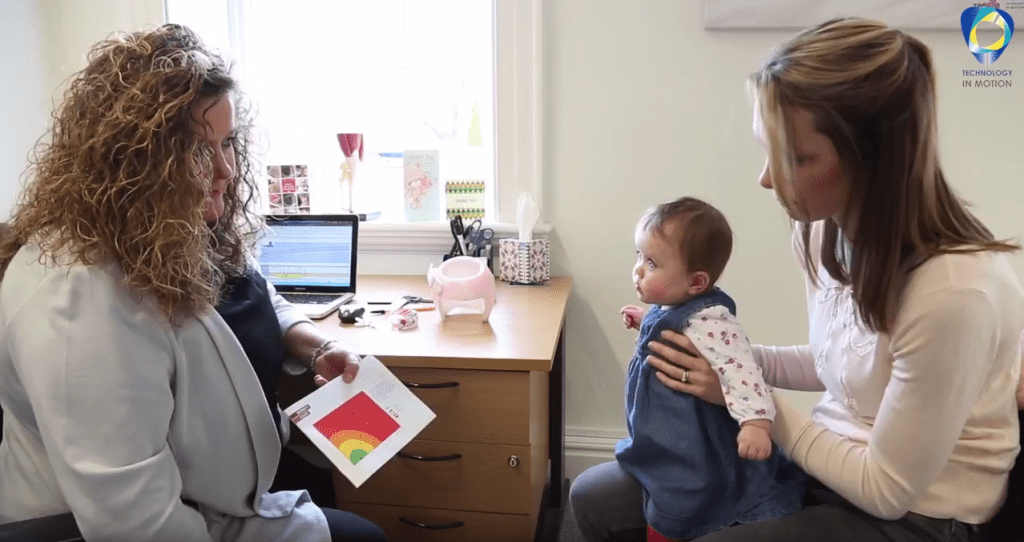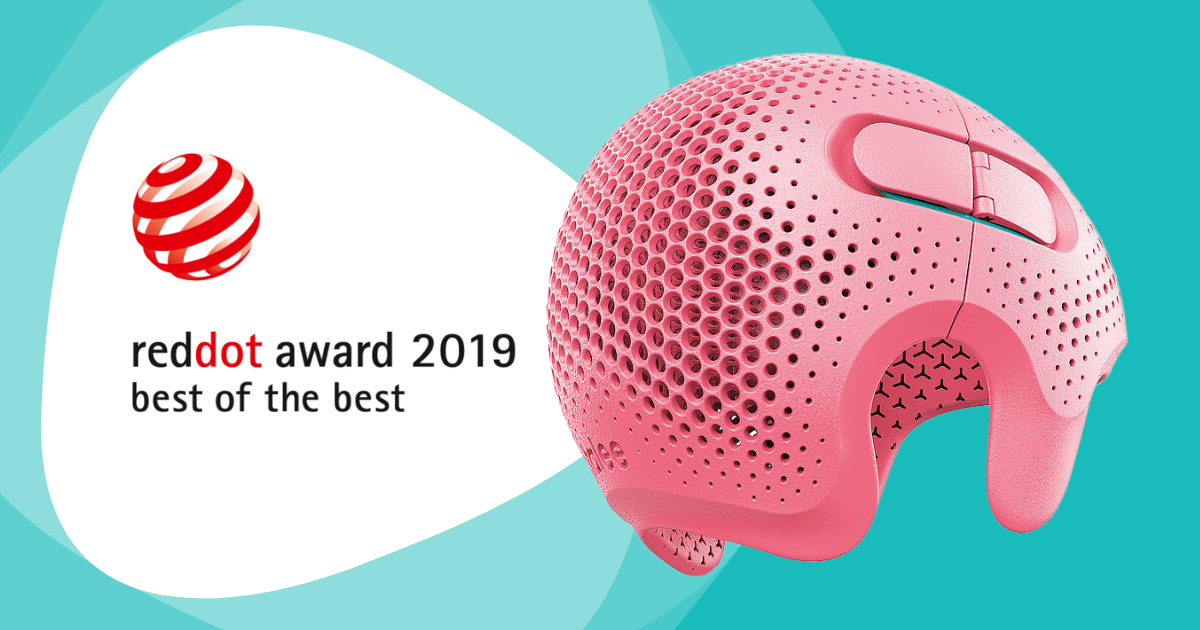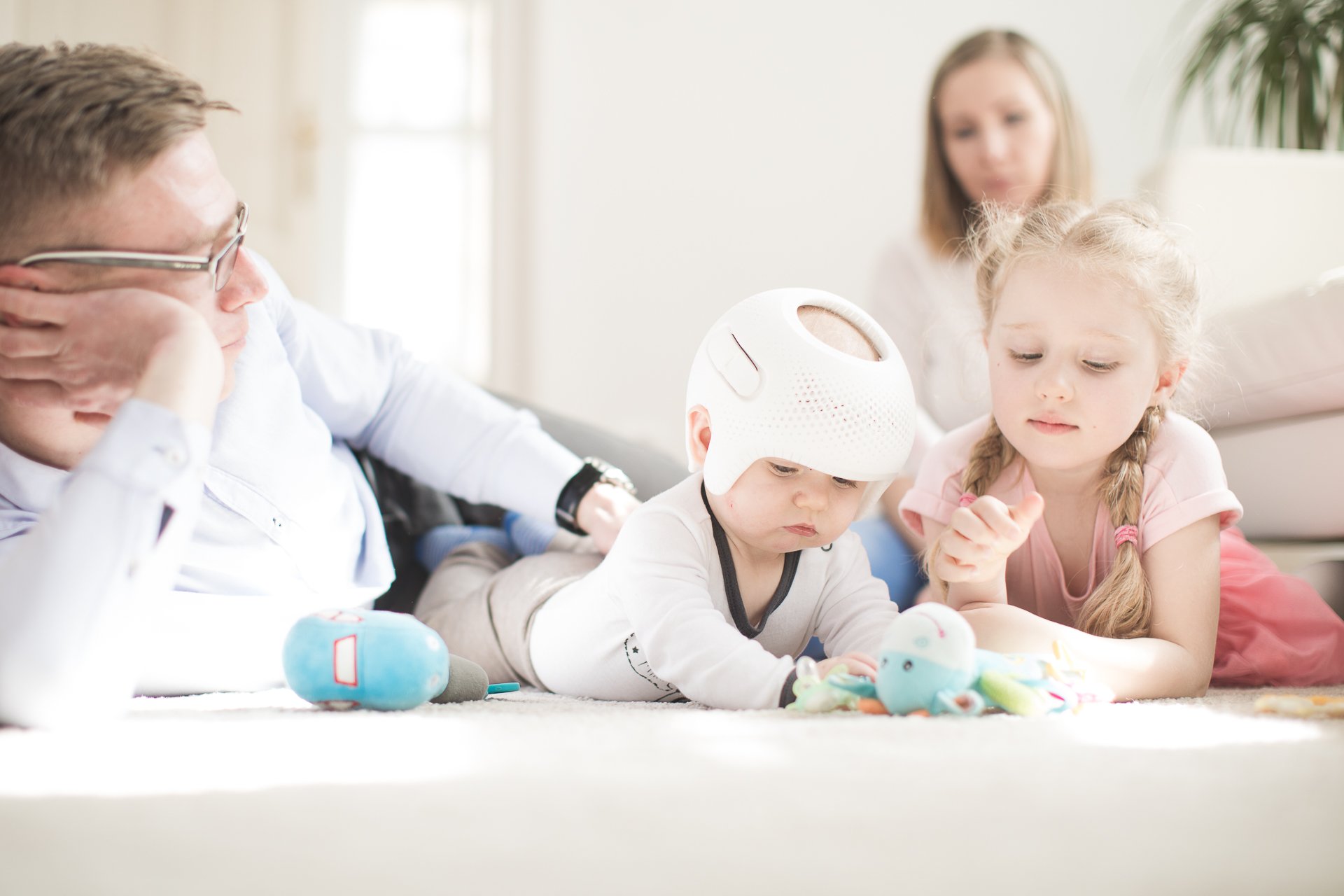
What to Expect at Your First Plagiocephaly Appointment
If you’ve noticed a flat spot on your baby’s head and are considering going for a plagiocephaly evaluation, there are probably several questions running through your mind. How will the condition be assessed? Will it be painful or frightening for my baby? And supposing that my baby does have plagiocephaly, what happens next? Will they tell me the truth?
First of all, we would like to assure you that plagiocephaly evaluations are completely pain-free, as is the treatment itself. Assuming that you choose an established, reputable clinic with qualified and experienced practitioners, you have absolutely nothing to worry about.
So what will happen at your baby’s first plagiocephaly appointment? Well, the specifics vary between clinical companies, but this post should at least give you an idea of what to expect from a plagiocephaly evaluation.
Plagiocephaly Evaluation: The Process
In a plagiocephaly evaluation, the clinician, usually an orthotist, should take a detailed history from birth to the time that you come to see them. They should ask about the type of birth, the position of the baby, and when you first noticed the flattening, and then evaluate your baby’s development to date. They should measure the head circumference and take two sets of measurements – width and length, and across the ‘corners’ – to allow them to assess the severity of the condition.
Having gathered all of the necessary information, your Orthotist should explain the treatment options. At Technology in Motion, we don’t recommend treatment for normal or mild head shapes as they are within the least severe 95% of the population. If your baby is less than four months old you should be advised to continue repositioning to see if this will help to improve the head shape and reduce any asymmetry or excess width/length. Repositioning involves encouraging your baby to vary the position of the head while playing, feeding and sleeping – you might well have already heard about tummy time, for example. Please note that your baby must always be placed on the back to sleep to lower the risk of Sudden Infant Death Syndrome (SIDS).
UK NHS advice is that repositioning always works, and to some extent this is true, especially for mild head deformities. However, moderate and severe cases will always retain some deformity even with repositioning, unless you take other measures to improve it. We have seen many severe and advanced cases of deformational plagiocephaly in older infants where the asymmetry is still very noticeable, even when advice regarding repositioning has been followed to the letter. If this is the case and/or your baby is over four months old, repositioning is unlikely to be fully effective. Once babies reach this age they start to move more independently, making it almost impossible to encourage them to sit or lie in a certain way.
Sometimes a scan is taken at an assessment, to bring up a 3D image of the head shape. Don’t worry – this is a safe, quick and pain-free process and Technology in Motion only uses photographic scanning methods with no lasers. If the asymmetry is moderate or severe, i.e. in the top 5% most severe of the infant population, and your baby is too old to benefit from repositioning, your Orthotist will suggest using a TiMbandAir flat head helmet.
These gently correct the position and shape of the bones in the skull as the head grows, and cause absolutely no pain or discomfort. They have been shown to improve the overall symmetry and proportions of babies’ head shapes, restoring them to what is accepted within our society as the norm.
Depending on the starting age (4 to 14 months), treatment usually takes three to six months and is most effective when carried out on babies aged between four and seven months. Improvement can still be seen even when treatment is started as late as at fourteen months. Unfortunately, starting treatment after this time renders it minimally effective as the majority of growth has already been achieved and there is little left to help bring about correction. If your baby is older and you are uncertain whether this kind of treatment is for you, please talk to your Orthotist.
What to Expect at Technology in Motion
At Technology in Motion, we offer a free, no obligation plagiocephaly evaluation in which we will assess the severity of the problem and help you decide on the right course of treatment for your baby. We have the latest baby-friendly photographic scanning equipment, which we will use to take 3D images of your baby’s head. This gives us incredibly precise measurements, enabling us to provide you with accurate data regarding the extent of the deformity.
Our practice is completely unique in that, at the end of the first plagiocephaly appointment, we email all parents with the initial and final scans with instructions on how to use on the 3D viewer; visual and statistical data that can be reviewed later on at home. If treatment is required and you choose to go ahead with it, we refer to this and manual measurement data to monitor the progress your baby makes during treatment.
When making a helmet, our Orthotists use data from the scan to form a mould of the desired head shape. The helmet is then custom-made based on this model and then fitted around two weeks later. Our helmets consist of a semi soft closed cell foam liner with a polythene co-polymer shell, which makes them lightweight, comfortable and durable.
By choosing Technology in Motion to treat your baby’s flat head syndrome, you can benefit from an all-inclusive treatment plan with no hidden costs. This includes the initial scan as well as regular appointments (after two weeks then at two- to four-week intervals, depending on the age of your child) to check up on progress and adjust the helmet. You will also have access to clinical and phone support whenever you need it and all scans, reports and letters required by your GP will also be covered.
To book a plagiocephaly evaluation in one of our clinics, call us on 0330 100 1800


